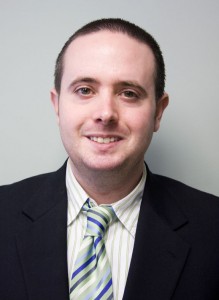The Roy H. Park School of Communications is starting the Park Peer Advising program this fall, which will allow students to seek mentorship from upperclassmen.
The Park Peer Advising program will assign freshmen and sophomores a rising sophomore, junior or senior adviser. The student adviser will play the role of a “go-to” student for campus life.

Bryan Roberts, assistant dean for student services, said one of his first jobs as assistant dean was to focus on the problem of juniors and seniors not having enough credits to graduate on time.
Sophomore Marc Phillips said he brought the idea to the table when he applied to be a dean’s host earlier this year.
Phillips said advising will be done on a volunteer basis.
“We feel there’s going to be enough people who want to volunteer because they have good hearts,” he said. “In the first hour we sent out the notice announcing the program, I got 10 emails from people seeking a peer adviser position.”
Diane Gayeski, dean of the School of Communications, said peer advising programs are not the norm at the college because of the role faculty advisers play.
“Having as many different sources of advice for students as possible is always beneficial,” Gayeski said. “There are certain kinds of questions that students feel more at ease asking a peer and can be answered at that level. This doesn’t diminish the role of any faculty adviser, it just provides another point of access for students.”
The duties of a peer adviser, Roberts said, will be monthly appointments with advisees and regular meetings with fellow peer advisers and himself. He hopes the program will also foster passion and enthusiasm for the Park School.
Catrina Decker, head of the peer advising program in the School of Business, said its long-standing mentoring program has been successful in helping first-year students transition academically and socially.
“Our peer advisers will usually go into one of the World of Business classes to meet with their advisees and show them how to build a better résumé and register for classes properly because they obviously didn’t get a lot of experience with that beforehand,” Decker said.
Sophomore Brooke Appelbaum, a television-radio major, said she would have been interested in a mentoring program freshman year, given the difficulties she had adjusting to college life.
“As great as faculty advisers are, they have so many students to deal with on their own, and every single circumstance is different,” she said. “With peer advising, it’s just another person for the underclassmen to look up to, someone to help with their trouble and another level of comfort.”






